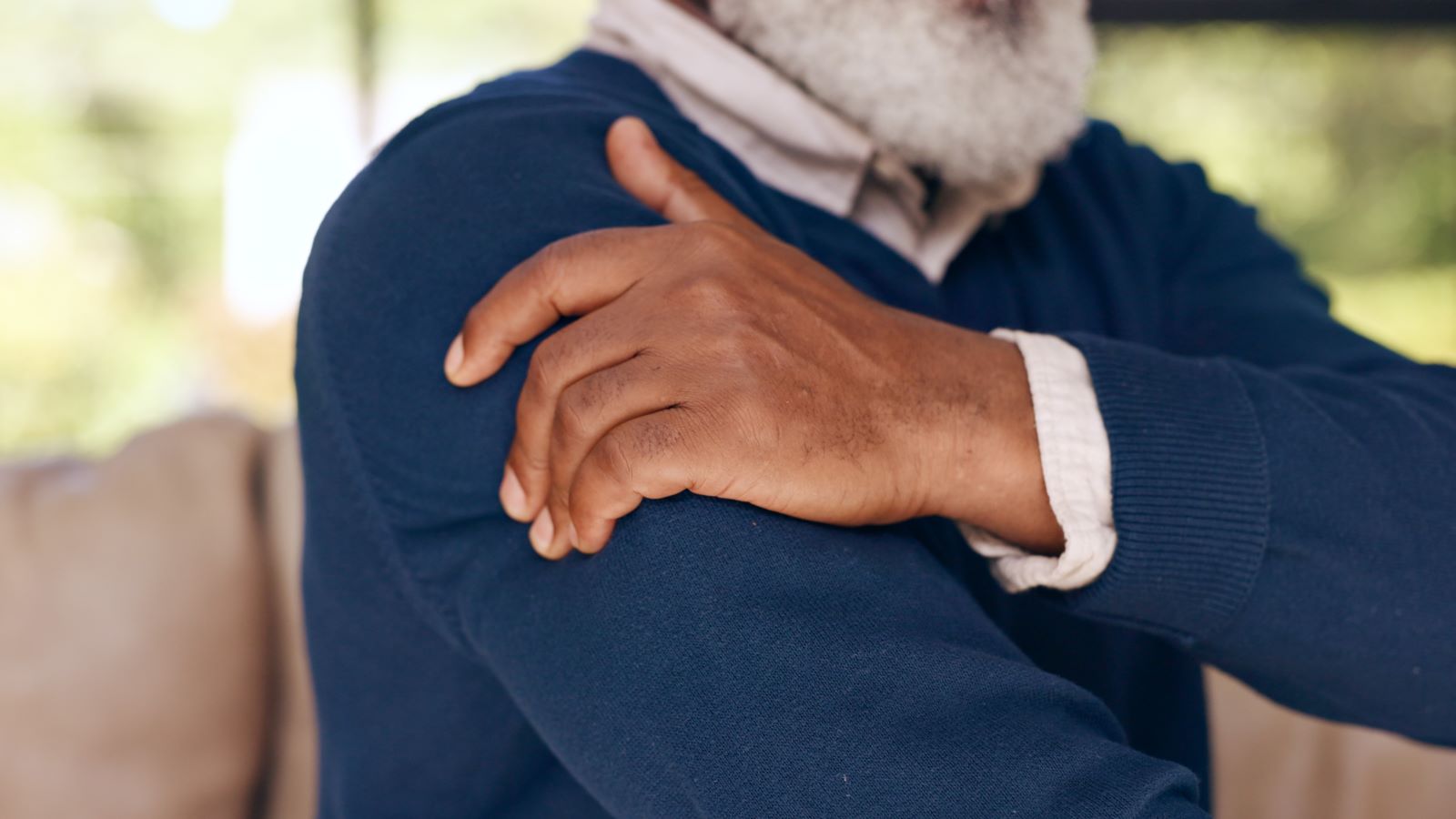<< Back
Can a Cortisone Shot Help With My Joint Pain?

February 20, 2025
Your joints may crackle, creak, pop or click — but when pain and stiffness join the conversation, it may be time to find some relief.
But could a cortisone shot be the answer to your joint pain?
We asked Kelms Amoo-Achampong, MD, an orthopedic specialist with Hartford HealthCare at the Connecticut Orthopaedic Institute at St. Vincent’s Medical Center, to explain how cortisone shots work and what to expect.
Cortisone shots offer relief from joint pain.
These injections contain a steroid, such as methylprednisolone, combined with an anesthetic like lidocaine, and are delivered directly into the affected joint to reduce inflammation and pain.
“These injections have anti-inflammatory properties that settle into the lining of joints and tendon sheaths,” Dr. Amoo-Achampong explains. “They communicate with the cells in these areas to dampen the body’s immune response, easing swelling and discomfort.”
Beyond pain relief, cortisone shots can also help pinpoint the source of symptoms.
“If we don’t have a clear diagnosis, a patient’s response to cortisone can guide us,” he says. “It can also help determine who may or may not benefit from surgical intervention if eventually needed.”
> Related: Can PRP Injections Help With My Joint Pain?
These 7 joints that benefit from cortisone shots.
Cortisone shots can effectively relieve pain in several different joints, including:
- Shoulder
- Elbow
- Wrist
- Hip
- Knee
- Ankle
- Spine
“Some joints are more challenging to access than others. Smaller joints like the elbow and deeper ones such as the hip often require us to use ultrasound or fluoroscopy to accurately inject the cortisone,” Dr. Amoo-Achampong says.
> Want more health news? Text StartHere to 85209 to sign up for text alerts
But there is the potential for side effects.
Cortisone injections have few side effects but can:
- Raise blood sugar levels in patients with diabetes.
- Increase risk of tendon rupture when used for tendonitis in areas like the Achilles.
- Cause infection as the needle passes through skin before reaching the targeted area.
“Your provider will talk to you about the risks and benefits before proceeding,” Dr. Amoo-Achampong notes.
> Related: Do Rainy Days Really Cause Joint Pain?
How long does relief last?
Steroid injections can provide effective relief for a few weeks to several months, depending on the type of injection, the joint being treated, and the specific condition.
While cortisone shots are excellent at reducing inflammation, Dr. Amoo-Achampong points out that they don’t address the underlying cause of the pain. To help, doctors often combine them with physical therapy or medications like ibuprofen.
However, getting multiple cortisone shots over a short period isn’t always the answer. Although there’s no official limit on how many injections one can receive, repeated use may harm cartilage and speed up arthritis progression in the joint.
“Over time, the effectiveness of repeated injections may decrease, and surgery might become the more effective option,” Dr. Amoo-Achampong adds.